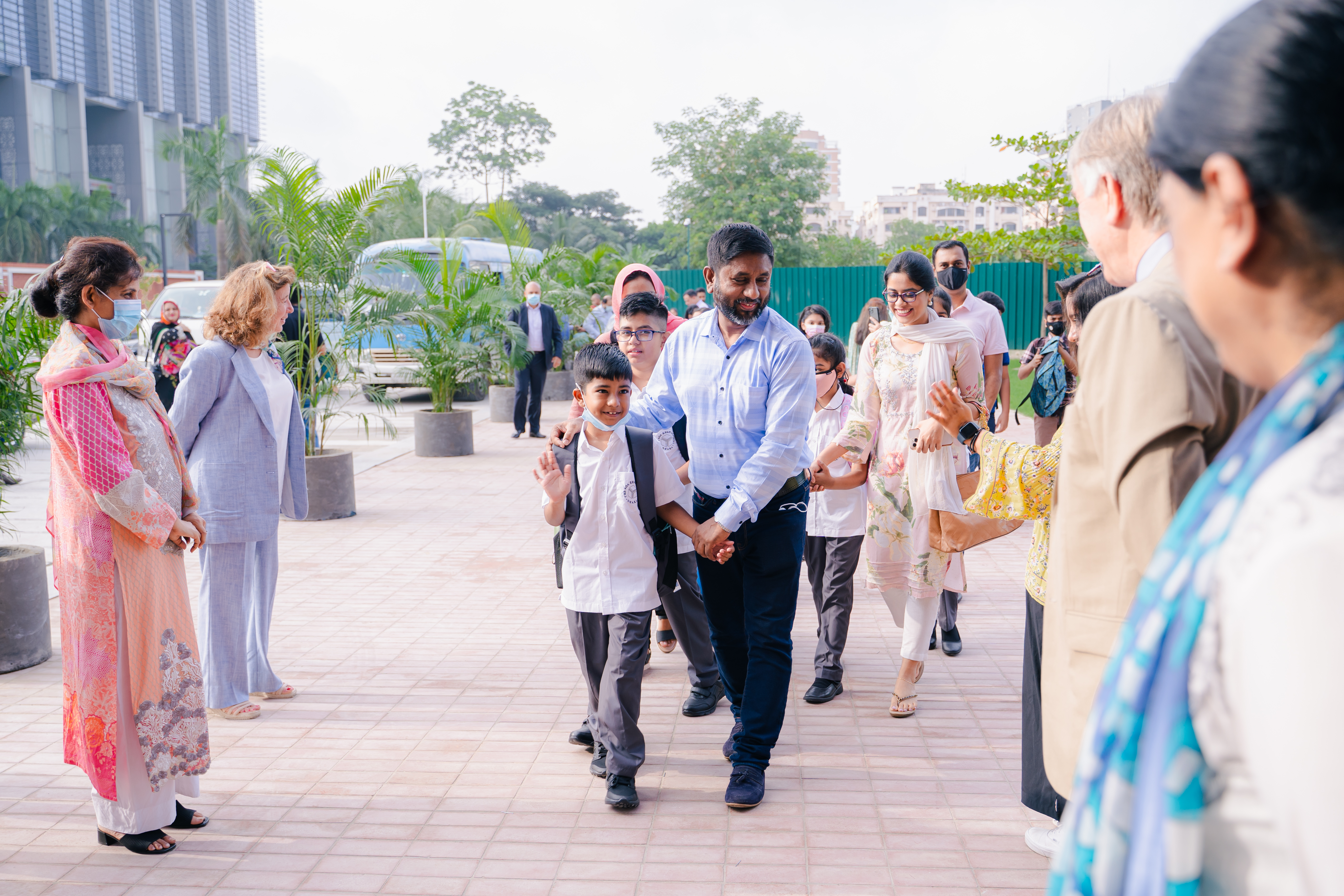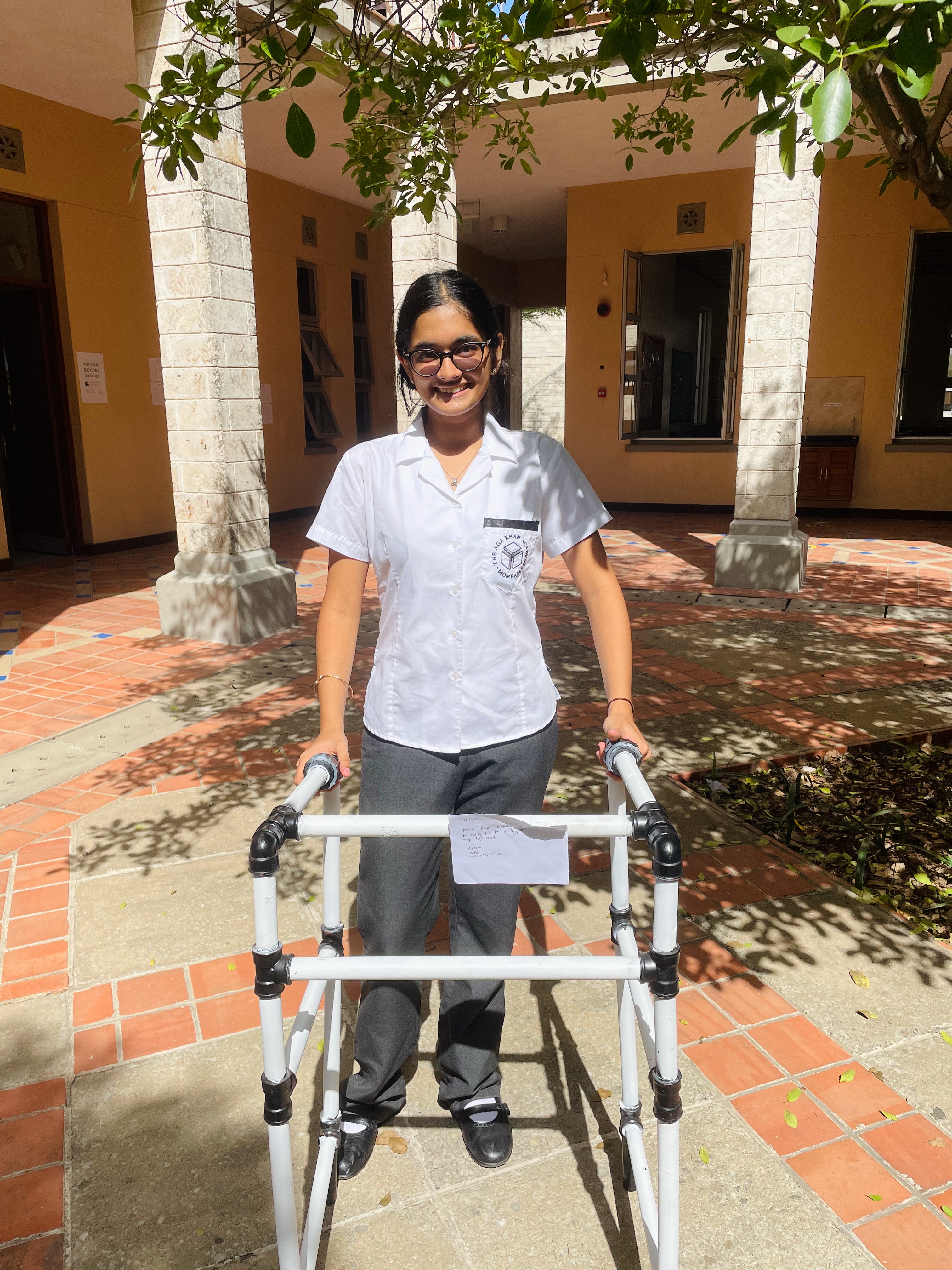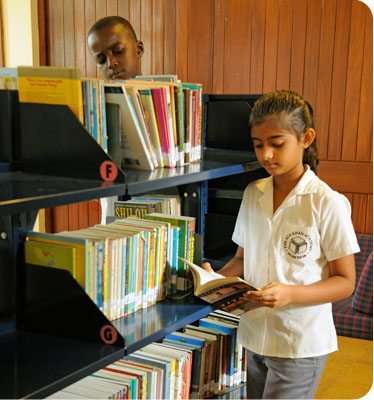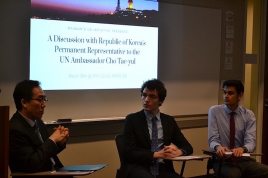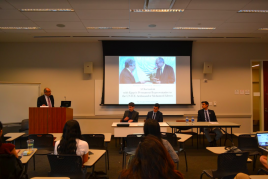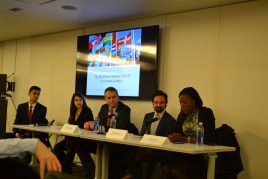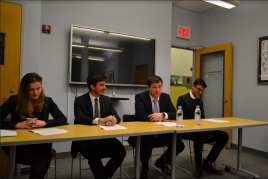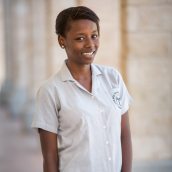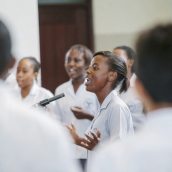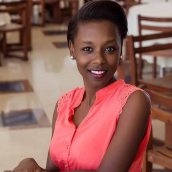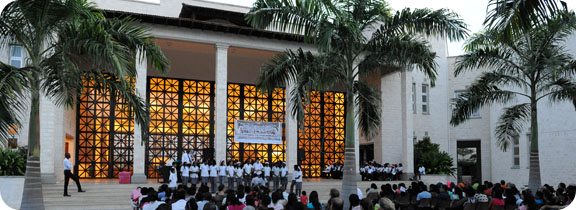
History
In 2000, His Late Highness Prince Karim Aga Khan IV initiated the establishment of the Aga Khan Academies, an integrated network of schools dedicated to expanding access to the highest standard of education.
The Aga Khan Academies is a part of the Aga Khan Schools, an agency of the Aga Khan Development Network (AKDN). The Aga Khan Schools is chaired by His Highness Prince Rahim Aga Khan V, who succeeded his father, His Late Highness Prince Karim Aga Khan IV, on 4 February 2025. The AKDN has a long history of involvement in education in countries of the developing world, with the first schools having been founded in 1905 in Mundra (India), Zanzibar (Tanzania) and Gwadar (Pakistan). Currently, the Aga Khan Schools operate 200 schools, eight hostels and more than 100 non-formal educational programme centres ranging from early childhood through to post-graduate education.
Establishment of the academies
In 2003, the first Aga Khan Academy opened in Kenya on an 18-acre site in the Kizingo area of Mombasa. The Aga Khan Academy Mombasa has already established a highly successful track record, with its students placing among the top tier worldwide in academic performance.
The Aga Khan Academy Hyderabad in India is the second to be established and opened with its first intake of students in August 2011. As with all the Aga Khan Academies, the Academy in Hyderabad selects students of all socio-economic backgrounds who show promise in academic and other areas, and who demonstrate good character and serious intent.
The Aga Khan Academy Maputo in Mozambique opened in August 2013. In August 2022, the Aga Khan Academy Dhaka in Bangladesh opened.
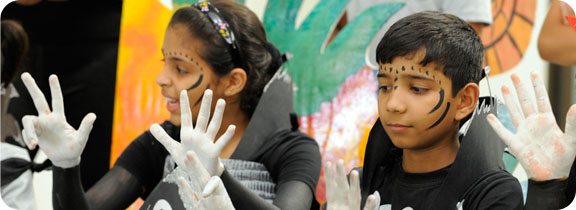
What Makes Us Unique
The Aga Khan Academies is an integrated network of day and residential schools across East Africa and South Asia. They are dedicated to expanding access to the highest standard of education for exceptional young men and women, regardless of their ability to pay.
The Academies are more than just day and residential schools that strive to give their students a sound academic foundation. Each school emphasises the importance of academic excellence while instilling in students a sense of civic responsibility, leadership skills and the desire, ability and commitment to give back to their communities locally and globally.
The Academies are grounded in an educational approach that measures success not just by academic achievement, but by how students apply what they know to make the world a better place.
Students receive a grounding in ethics and also develop openness towards difference and acceptance of pluralism by living in diverse communities. Both students and teachers participate in visits and exchanges to Academies in other countries and regions.
Aims of the Academies programme
Our programme aims to:
- Build inquiring, tolerant and creative minds
- Empower gifted individuals, including girls, to innovate and lead
- Over time, educate a cohort of well-trained local leaders with a sound ethical outlook and great intellectual capacity
- Establish a global learning community across diverse geographic, social, economic, religious and tribal boundaries by providing merit-based admissions
- Develop highly-trained and effective educators
- Positively influence education broadly across the targeted regions of the world, with measurable impact.
“The Aga Khan Academies aim to create ethical leaders with a strong sense of civic responsibility who will go on to the best universities in the world, pursue careers of their choice and…become leaders in the governments and the institutions of civil society in their own countries, in international organisations and in all those institutions, academic, economic and artistic that create positive change in our world.”
Embedded in our programme, the Aga Khan Curricular Strands (AK Strands) aim to strengthen understandings and outlooks needed by leaders of the future.
They encompass five critical areas of study:
- Ethics;
- Pluralism;
- Cultures (with an emphasis on Muslim civilisations);
- Governance and Civil Society; and
- Economics for Development.
The AK Strands examine issues of global importance and are also tailored to the cultural context of each Academy. This allows students to engage with international issues and challenges while remaining strongly grounded in their local context.
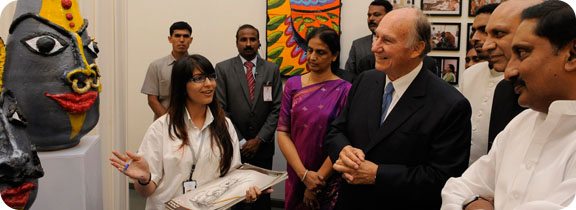
Vision
The outlook and educational perspectives of the Aga Khan Academies are based on the vision of His Late Highness Prince Karim Aga Khan IV. His vision looked to education of the highest quality that can prepare young people to lead and enact positive change in the world they inhabit.
The text below, drawn from the Foreword to Excellence in Education (Aga Khan Academies, 2003), outlines the vision of His Late Highness Prince Karim Aga Khan IV for the Aga Khan Academies.
A time of change
"We live in a time of rapid change — change that is often unpredictable and not always positive. My experience with development, as an observer and a practitioner, has led me to the conclusion that the best way to manage change, whether positive or negative, is to prepare for it and that there is no greater form of preparation for change than investments in education. These investments must focus, of course, on teachers of the highest quality — teachers who are creative and committed to their own life-long learning and self-improvement. It also means investments in facilities that provide an environment conducive to the less tangible but equally important elements of an education — self-esteem, leadership, tolerance, ethical judgment and moral reasoning."
What does it mean to be educated?
“However, as educators and parents have begun to make these investments, they are revisiting the age-old question: What does it mean to be an educated person? Many have come to realise that education must prepare students not only for the job market, but also for life.
From Zanzibar's madrassas to Britain's public schools, from American university preparatory academies to government schools in Pakistan, there is a realisation that education must equip students with more than a narrowly focused curriculum based on reading, writing and mathematics. It must expose students to a broad and meaningful study of the humanities, including science, music and art. The teaching of history and world civilisations must be more broadly representative of the world's entire heritage than it has in the past. This is especially true in regard to Islamic civilisations, which have been misrepresented or ignored despite their vital contributions in a wide range of spheres, from science to architecture.
Education must include mastery of more than one language and an ability to communicate effectively in those languages. In the face of the most rapid advances in technology in history, education also must teach students how to master information technologies. These skills now form a critical part of the learning process, as well as essential qualifications for application in the workplace, but even these elements are not enough."
Preparing children for life
“An education must equip students with the tools that enable them to adapt and thrive, in a world characterised by change. In such an environment, technical proficiency is not enough. Education that prepares children for life must go beyond fundamental skills to stimulate creativity, intellectual curiosity and honest inquiry. Advancement and development, both personal and societal, are dependant on these elements. Innovation and progress arise from the ability to approach a challenge in a new way and offer a solution."
A pluralistic outlook
“Education must also make the case for a pluralistic tradition in which other views, ethnicities, religions and perspectives are valued not only because that is just and good, but also because pluralism is the climate best suited for creativity, curiosity and inquiry to thrive. It must also stimulate students to consider a variety of perspectives on some of the fundamental questions posed by the human condition: 'What is truth?' 'What is reality?' and 'What are my duties to my fellow man, to my country and to God?' At the same time, education must reinforce the foundations of identity in such a way as to reinvigorate and strengthen them so that they can withstand the shock of change."
The most important measure of an education
“What students know is therefore no longer the most important measure of an education. The true test is the ability of students and graduates to engage with what they do not know and to work out a solution. They must also be able to reach conclusions that constitute the basis for informed judgements. The ability to make judgements that are grounded in solid information and employ careful analysis, should be one of the most important goals for any educational endeavour. As students develop this capability, they can begin to grapple with the most important and difficult step: to learn to place such judgements in an ethical framework.
“For all these reasons, there is no better investment that individuals, parents and the nation can make than an investment in education of the highest possible quality. Such investments are reflected and endure, in the formation of the kind of social conscience that our world so desperately needs."
His Late Highness Prince Karim Aga Khan IV
Access the biography of His Late Highness Prince Karim Aga Khan IV, the founder of the Aga Khan Development Network, here.
His Highness Prince Rahim Aga Khan V
Access the biography of His Highness Prince Rahim Aga Khan V, the Chair of the Aga Khan Development Network, here.
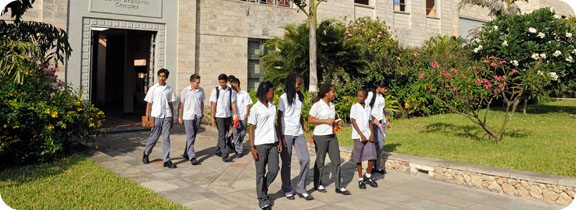
Introduction to the Aga Khan Academies
In 2000, His Late Highness Prince Karim Aga Khan IV initiated the establishment of the Aga Khan Academies, an integrated network of schools located in countries across East Africa and South Asia.
The aim of the Academies is to develop future leaders with the skills and knowledge to support positive development in their societies. The Academies achieve this by recruiting exceptional young people from all backgrounds and providing them with the highest international standard of education.
Admission is based upon merit, with financial aid available to ensure access for accepted students regardless of financial circumstances.
Global network
The first Aga Khan Academy opened in Mombasa, Kenya in 2003, the second in Hyderabad, India in 2011, the third in Maputo, Mozambique in 2013 and the fourth in Dhaka, Bangladesh in 2022.
Rigorous academic programme
The academic programme offered by the Academies has been developed according to the principles of the widely-recognised International Baccalaureate (IB). The IB provides a challenging academic environment for students and allows their achievement to be measured against international standards.
In addition to providing a rigorous academic and leadership experience, the Academies help students develop an ethical and public-minded outlook through community service opportunities and education on ethics and pluralism.
“An education must equip students with the tools that enable them to adapt and thrive in a world characterised by change.”They also recognise that to become effective leaders, students must be both globally minded and locally rooted. Global as well as local perspectives are reflected in the curriculum, and students study in both English and the local language.
Purpose-built residential campuses
Each Aga Khan Academy campus is architect-designed and purpose-built. They feature state-of-the-art classrooms and resource areas and extensive sports facilities.
The residences provide secure and well-supervised accommodation for local and international students as well as those visiting from another Academy. Additionally, both students and teachers participate in visits and exchanges between Academies to broaden their experience and practical understanding of pluralism.
Professional development
Promoting excellence in teaching, both on campus and more broadly, is a major goal of the Academies. Each Academy is established as a Professional Development Centre (PDC). The PDC aims to strengthen the profession of teaching in the region by providing substantial professional learning opportunities and modelling highly effective educational practices.
Raghuveer Vyas (Class of 2016): Advocating for change and development
Raghuveer Vyas graduated from the Aga Khan Academy Mombasa in 2016 with a desire to be a change-maker in our world. Due to his experience at AKA Mombasa, this desire has become a reality.
Raghuveer Vyas, far right, at a UN Initiative event at NYU.“My time at the Academy undoubtedly influenced where I am now,” Raghuveer said. “The Academy's strong emphasis on contributing back to society certainly further influenced my academic choices.”
Raghuveer pursued his undergraduate degree at New York University (NYU) in Global Liberal Studies with a concentration in Politics, Rights & Development. Currently during his final year, Raghuveer was admitted into NYU’s Bachelor of Arts (BA)/Master of Arts (MA) programme.
“Through this programme I hope to graduate with an MA in International Relations by 2021,” Raghuveer said. “I will be concentrating on Sub-Saharan African affairs and peace and conflict resolution in the International Relations programme.”
Since joining NYU, Raghuveer has been a member of the United Nations Initiative at NYU, which was created to increase the dialogue between international leaders and the youth/students who have become disconnected from the global political process. During his final year as an undergraduate, Raghuveer became the director of the Initiative because he believes “the UN Initiative’s mission and actions to be absolutely critical to the political discourse at NYU.” Due to his commitment and passion, Raghuveer said he has made some impressionable strides in the Initiative.
“I personally have worked to increase the participation of the African international leaders, such as the ambassadors of Egypt, Nigeria and the African Union,” Raghuveer said. “I’m also working to expand our panel discussion series, which focuses on thematic issues as opposed to the affairs of nation-states.”
As part of the Global Liberal Studies programme at NYU, students are required to spend a year abroad at one of NYU’s satellite campuses, such as Berlin, which is where Raghuveer decided to go. Through this, Raghuveer discovered his passion for climate change when he started interning with Climate Analytics, an international climate science and policy institution.
Raghuveer Vyas, far right, at at UN Initiative event at NYU between an ambassador from Egypt and NYU students.“I truly began to understand that climate change poses the single largest threat to the human species, and would disproportionately affect lower economic classes and citizens in developing countries, with the African continent poised to be one of the worst hit, “ said Raghuveer.
While in Berlin, Raghuveer worked as part of the climate policy team at Climate Analytics where he conducted scholarly research on the policies surrounding climate change mitigation and adaptation. As part of the team, Raghuveer said he was able to co-author a report, “Decarbonising South and South East Asia”, for the Asian Development Bank and the UN Environment Programme.
“The report aimed to investigate the current state of fossil fuel consumption in South and Southeast Asia and analyse the potential of renewable energy forms to replace these fossil fuels,” Raghuveer said.
Due to his time at Climate Analytics in Berlin, Raghuveer said he rejoined as an intern at their New York office during his final year at NYU. In New York, Raghuveer worked with the Implementation Strategy team, which assists developing countries, specifically countries in Sub-Saharan Africa and the Caribbean.
Raghuveer Vyas, far left, at a UN Initiative at NYU.“While the work I did was quite diverse, I worked quite closely with the small, and severely threatened, country of Saint Lucia,” Raghuveer said. “The country was attempting to receive financing from the international community to realise its ambitious National Adaptation Plan for climate change. I got to work on the national Private Sector Engagement Strategy (PSES), which chartered, among other things, a means through which the government could better engage with the country’s private sector in making them more resilient to climate change. This was submitted to the Saint Lucian government in early December, with the Cabinet of Ministers poised to read it in the new year.
Along with this, Raghuveer said he has worked on preliminary research for a universal Green Affordable Housing Project for Saint Lucia, which “aims to create a relocation and housing system that is resilient to the effects of climate change and compensate victims.” Raghuveer said he also drafted a funding proposal for Saint Lucia, “which aimed to revamp the national health sector and make it more resilient to climate change, both in terms of service provision and infrastructural soundness.”
Although his interests aren’t only focused on climate change, Raghuveer said he understands the urgency of recognising this phenomenon and the implications it can have on the entire world.
“Climate change is somewhat personal to me as I come from a farming family in Kenya,” Raghuveer said. “I’ve directly witnessed the impacts of a changing climate on the farm and seen how widespread the impacts are. For me, climate change has provided a unique lens through which to understand and question some of the perennial challenges facing the Global South.”
Reflecting on his time at the Academy, Raghuveer said he would not be where he is now had it not been for the various opportunities he received and the different skills he learned at the Academy.
“I first discovered my passion for global politics at AKA Mombasa through different platforms ranging from participating in Model United Nations, to having an incredible team of Humanities and Global Politics teachers who all really encouraged me to hone in my skills in the subject,” Raghuveer said. “A lot of necessary skills, such as critical thinking and analytical writing, were taught to us at the Academy, making it far easier for me to adjust to the demands of college.”
Raghuveer Vyas, far right, at the NYU Jordan Center.Although Raghuveer is unsure of what he’ll do after his Master’s at NYU, he said he is looking forward to what the future has in store for him.
“I’m excited to be a student during one of the most fascinating and influential eras in Global Politics and I’m looking forward to learning more about the various issues that grip us as an international community,” Raghuveer said.
By Anusha Lalani
Mary Favour (Class of 2015): Ambitions to build a better future
For a while, getting an education was a process for Mary Favour. She would rise early in the dark – at 4:00 am – and make the long trek to school on foot with her three siblings, arriving at around 6:30 am each day. By the time they returned home to Mombasa, it was 7:00 pm. The rest of the evening was spent helping their mother around the house and finishing their homework.
It wasn’t easy, Mary recalled.
“My sisters and I grew up with a single mother,” she said. And resources were tight.
When the electricity bill wasn’t paid, the Favour children would study under the dim glow of a kerosene lamp or by candlelight. The four siblings had limited school supplies and relied on Mary for many of their study materials.
“We got awarded books if we topped the class,” she explained. “Sometimes we’d get textbooks, other times we’d get storybooks or novels. It was an incentive that the teachers had to motivate students.”
A new opportunity at the Aga Khan Academy Mombasa
Despite the obstacles, Mary said her mother was determined for her to succeed. She pooled her resources to give Mary a much-needed laptop in grade 9. By then, things had begun to turn around – Mary had received a full scholarship to study and live at the Aga Khan Academy Mombasa as part of its Talent Identification Programme, a programme that provides students from more disadvantaged backgrounds the opportunity to attend the Academy on full scholarship. She would graduate in 2015 and go on to study at the University of Toronto in Canada, also on full scholarship.
Now a second-year student at university, Mary hasn’t forgotten her difficult upbringing or her roots. In fact, the struggle to get an education early on has instilled in her a strong desire to give back to her community and help others like her get a shot at a better life.
“Six years of growth, skill and a good education” at the Academy was “a gift,” Mary said. “I want to [give] a gift to someone else.”
In particular, she’s learned the importance of independence, humility and sacrifice – lessons she put to use during her Academy days.
Mary joined the Aga Khan Academy in 2009 as part of the first batch of students in the Talent Identification Programme. While there, she participated in a range of activities, including choir, soccer and debate, with the same level of perseverance her mother had taught her. She quickly excelled academically, becoming an honors student in grade 10, and also challenged herself in extracurriculars – musically in competitions and as the assistant captain of her hockey team.
Helping others through community service
Beyond this, Mary fostered a passion for community service and activism rooted in her desire to help outsiders fit in. She led the ‘Just Say No’ initiative, a programme focused on rehabilitating primary school girls in Mombasa who had turned to prostitution in large part to support their families financially.
She worked with these girls for three years, exposing them to the same opportunities she and other students had the privilege of in their own education, including sports and debate. She hosted workshops on public speaking and art, as well as sessions with counsellors and strong female mentors, and invited the girls to perform at the Academy’s talent competition.
“The aim was to help them feel integrated into society but at the same time equip them with skills that would make their education holistic,” Mary said. The mission was especially important, she said, because of the gender gap she saw in Mombasa’s primary schools and the way in which this unfair system contributed to larger problems down the line.
“That inequality creates an imbalance that marginalizes women in our society,” Mary said.
Under her leadership, the club received three awards and became one of the most successful student groups on campus.
Supporting other students to succeed
In addition, Mary founded the ‘I Know Who I Am’ initiative, a programme that integrates scholarship students like herself into the Academy community while understanding that they needed to “stay in touch with home and not forget their society,” as Mary explained.
“I wanted to celebrate the diversity that came with these students but at the same time make sure that they don’t lose themselves,” she said. So she ran workshops on pluralism and open-mindedness, ate food and played games the students would recognise from home and “held discussions on what it meant to be part of a community but remain true to yourself.”
In the summer of 2017, Mary interned with the Students for International Development. The non-profit organisation was founded and is run by students. While there, she worked with the Orphan Sponsorship Programme as project manager for about two months. Mary and her team focused on the Simboyi Primary School in Vihiga, in the west of Kenya. They were in charge of the remedial education project for orphans and also worked on projects to support students financially.
After conducting interviews with some of the students in Vihiga, Mary and her team developed a means by which to help them be better equipped to reach their full potential. According to Mary, a number of the students came from families that were struggling to make ends meet. Some, she recalled, told her they only had one meal per day, which usually consisted of just ugali or porridge. Others said they didn’t eat at all. Further, a number of those who performed well in class were unable to pay for their exams and had to sit them out instead.
With Mary’s help, the organisation created a scholarship to help these students. The award, which she said covers basic health care, one meal a day, a yearly uniform and exam fees, will be able to assist 55 students during the current academic year at Simboyi. The hope is that the sponsorships will continue into the next year if budget and fundraising allow.
Real-time results and change like this mean the world for Mary, not least because she knows firsthand what it’s like to have the academic situation and resources not in your favour.
“I was a child with big dreams and no way of actualising them until I joined the Academy,“ she said. “I want to be for someone else what the Academy was to me.”
Catalyzing change for a better future
Mary believes education is one of the best tools to rid our societies of poverty, and she’s determined to be in a position to support students so they have better paths forward at their disposal than what she had. That’s why she plans on returning to Kenya after she’s obtained the necessary experience and skillset to properly give back to her country and community.
Currently majoring in human geography and diaspora and transnational studies and minoring in African studies, Mary thinks that, through the study of cultures and international development, she can better understand how to bridge the gap between rich and poor at home. Her hope is to protect the rich cultural diversity of Kenya but also contribute to changing the country so that it is better able to develop and sustain itself and compete and interact on a global scale more effectively.
“Kenya is at such a pivotal moment in the making of African history,” she said. “It has so much potential. I just want her to maximize her potential. I want to help her do it.”
Mary is uniquely positioned to kickstart such a change at home. Her pluralistic perspective on the world and passion for country could be just what Kenyans need to motivate their leaders to be better and to take action to institute real change. And if her triumphs at the Academy are any indication, Mary’s motivation may just be contagious.
By Farah Mohamed
